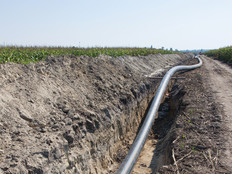How North Carolina Aims to Close the Digital Divide
As StateScoop notes, North Carolina ranks 18th among states in terms of broadband access, according to BroadbandNow Research, a firm that provides independent data and research on broadband access and policy.
While 94 percent of North Carolinians have access to broadband 100 megabits per second or faster, according to BroadbandNow, only 46.8 percent of the state’s population has access to a low-price broadband plan.
The new digital equity office will execute Cooper’s plan to expand digital literacy offerings and partnerships across North Carolina, as well as lead the Digital Equity and Inclusion Collaborative and promote the state’s digital inclusion playbook for local municipalities.
Cooper’s plan is built around the three pillars of infrastructure and access, affordability and digital literacy. Cooper is proposing using $600 million in federal funding to “rapidly build crucial infrastructure in unserved areas to give internet speeds” of 100Mbps downlink and 20Mbps uplink to 98 percent of households, and 50Mbps downlink and 10Mbps uplink to 100 percent of households (with the ability to handle future speeds of 100/100Mbps).
The plan also proposes using $420 million to “promote federal programs for affordable internet and continue subscription support once federal funding ends” and $165 million to “give 365,000 households the devices, repair support and digital literacy and skills training to participate in the digital economy.”
“An additional $15 million would cover administrative and operational costs to supplement existing state administrative capacity to support high-speed internet efforts,” the plan notes.
North Carolina expects that the plan also will require “significant private investment,” presumably from internet service providers.
By 2025, Cooper wants to increase the percentage of North Carolina households with high-speed internet subscriptions from 73 percent to 80 percent. He also wants to boost the percentage of North Carolina households with children with high-speed internet subscriptions from 81 percent to 100 percent.
The plan is also focused on closing racial disparities in access to high-speed broadband and seeks to increase adoption rates to 80 percent across racial subgroups including Native American (currently 57 percent), Black (currently 64 percent), Latinx (currently 68 percent) and white populations (currently 76 percent).
The North Carolina legislature is separately considering a $750 million bill to expand broadband access sin the state.
MORE FROM STATETECH: How are cities and counties helping school districts get students online?











